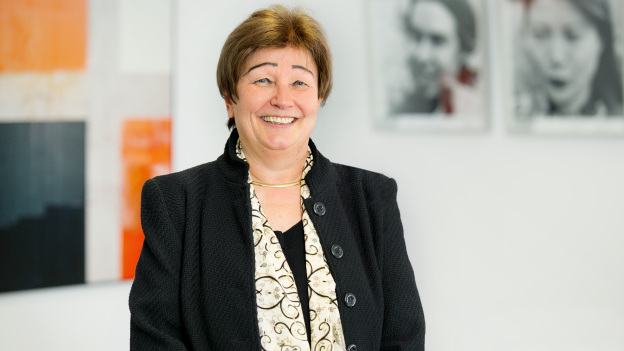Hurdle with serious consequences
 DAAD/Thilo Vogel
DAAD/Thilo Vogel
More than one million refugees arrived in Germany in 2015. This represents a big challenge, but also an opportunity for the state and society. Experience has shown that the first to take the risk of flight are those who are better informed, better qualified and better connected. A good level of education can therefore be expected among many of the refugees. According to current estimates (truly reliable surveys do not exist), between 30,000 and 50,000 persons meet the conditions to begin a university degree or resume their studies.
While this is just a small proportion of the refugees, they will assume a special role: those with a good educational background, particularly in academic professions, can be role models for many others. Experience in crisis states has shown that professional perspectives motivate young people in particular to devote themselves with a resulting positive impact on society. What’s more, the high social standing of universities, both in our and other societies, endows them with an important multiplier effect.
The integration of refugees who want to and are qualified to study into academia is therefore a central task of the universities. For this to succeed, reliable structures are primarily needed to show refugees ways into the world of academia and to enable them to continue successfully there. International students and particularly refugees require effective assistance. Universities have been preparing themselves in recent months and are receiving extensive support in this. The Federal Ministry of Education and Research (BMBF) has allocated €100 million for the years 2016 to 2019.
The integration process can be divided into four phases: the introductory phase, the preparatory phase, the study phase itself and the transition to a professional career.
The first phase begins with initial contact with a university and assessment of academic aptitude and language proficiency. This phase includes the verification of documents, determination of academic aptitude as well as possible solutions if documents are not available. Help through assessment and review procedures such as TestAS and uni-assist, for which the DAAD can assume the costs, is available for all these steps. This chiefly diagnostic phase determines whether applicants can commence a degree course or first need to complete a preliminary preparation phase.
Those not eligible for direct access to higher education are referred to a preparatory college or comparable institution. The BMBF is funding 2,400 additional places per year for this purpose. The universities themselves also receive funding to prepare prospective students for their future studies with language instruction and subject-specific propaedeutic courses (“Integra – Integration of Refugees in Degree Programmes”). Such preparatory courses will often also be necessary for applicants who possess a formal qualification for direct admission to higher education (e.g. Syrians with good secondary school qualifications), but who were forced to interrupt their studies for a longer period. The preparatory phase lays the foundation for successful studies. The BMBF has allocated €5 million to fund student initiatives and mentoring programmes in an effort to effectively support the outstanding commitment of German students and, when possible, reward those involved with study credits (“Welcome – Students Helping Refugees”). Close personal contact and assistance during academic studies are after all part of the integration process.
And what is the current situation at the universities? Despite the high level of commitment of German higher education institutions, which have shown great flexibility to make things possible, most enrolment figures are in the double-digit range, with no sign of any onslaught. It would however be wrong to interpret this as a lack of interest in education among the refugees. The problem is partly that most of the refugees are still in the midst of asylum proceedings. This could change by autumn, as the procedure for granting the right of asylum is to be shortened. The other problem is that many refugees have not yet attained the necessary proficiency in German. Language skills are currently perhaps the biggest hurdle of them all and at the same time the one with the most serious consequences. Learning German is key when it comes to integration. The time expended and the cost involved is considerable and the integration courses do not fully cover the acquisition of this key skill as the language proficiency gained in these courses is below C1. The major shortcoming that continues to exist in this respect must be rectified. The necessary additional amount of funding (in the double-digit million range) is urgently required. Language acquisition is not merely a considerable financial problem though: far more teachers are also required. Initiatives by individual universities, which are often funded by state ministries, will not be able to cover the magnitude of this need.
By Dorothea Rüland
This article appeared in the DUZ (Deutsche Universitätszeitung – German University Magazine) on 03.02.2016, abridged version.